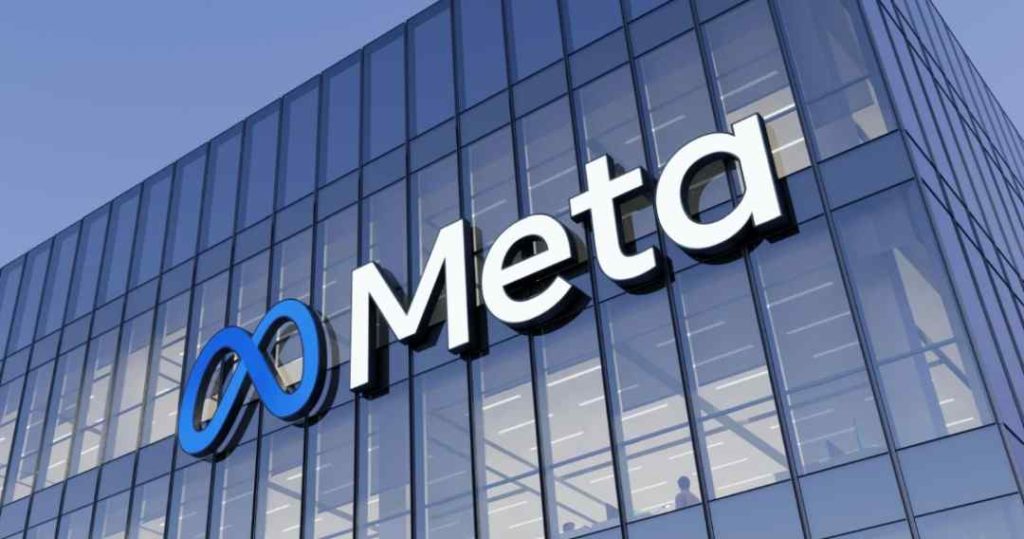While Facebook offers some cloud services, such as the Facebook Developer Platform and Parse Platform, its offerings are limited compared to dedicated cloud service providers like AWS, Azure, and Google Cloud.
As we explore Facebook’s role in the cloud computing landscape, you’ll discover whether it can truly be considered a full-fledged cloud service provider and how its services compare to the competition.
What Is The Size Of Facebook’s Online Infrastructure?
Initially, Facebook was hosted on Harvard University’s servers, and it was known as thefacebook.com at the time.
When Zuckerberg and his team sought to grow, it was obvious that the Harvard University servers would not suffice, so they went with a dedicated server. According to TechCrunch, Facebook’s initial server cost them roughly $85 per month.
Eduardo was in charge of obtaining ads, which would eventually cover the cost of the servers. AdSense had recently been launched, for your knowledge.
Adding/renting out more servers was no longer an option as Facebook’s user base grew. It was also a time-consuming operation. After that, the team opted to construct their own data centers.
Facebook requires an extensive storage infrastructure to host its massive data, which continues to increase daily as users upload hundreds of millions of new data.
As it expands its platform capabilities, it needs more cloud space to support 3D spaces in the metaverse that will let you socialize, learn, collaborate and play in ways that go beyond what we can imagine.
In addition, the company’s infrastructure must support platform services for more than 1 million websites and hundreds of thousands of applications using the Facebook Connect platform.
Facebook’s worldwide data center network supports the company’s programs and services, including Facebook, Instagram, Messenger, and WhatsApp, allowing billions of people worldwide to communicate and share information.
Facebook owns and maintains 18 data center campuses throughout the world, totaling 40 million square feet and costing more than $20 billion.
Facebook owns and maintains 14 data center facilities in the United States, totaling 34.2 million square feet and costing over $16 billion.
In Europe and Asia-Pacific, Facebook owns and maintains four data center sites totaling 5.4 million square feet and a $4 billion investment.
Facebook used to manage its infrastructure by leasing “industrial” data center space from third-party operators before creating its own server farms.
The data center is built, including the raised-floor technical area and the power and cooling infrastructure, by wholesale providers, who then lease the finished facility.
Users may occupy their data center space in roughly five months under the wholesale model instead of the 12 months it takes to establish a big data center. As a result, Facebook was able to scale quickly to keep up with the increase of its user base.
However, the business has now built strong internal data center engineering capabilities, which it has successfully used to construct one of the largest data center portfolios in the world.
Is Facebook Using Any Public Cloud Services?

Facebook uses its infrastructure to deliver cloud services to its many apps and platforms as of December 2021. Facebook is one of the most well-known IT firms that does not use AWS or Azure. Facebook, therefore, does not outsource cloud services to keep its data.
Because Facebook had a high number of users when AWS was being developed in 2009, it maintains its own infrastructure to satisfy its demands. Azure, on the other hand, was born in 2010.
That’s why, rather than investing millions in a cloud provider like AWS or Azure to host their data, Facebook built its own infrastructure. As a result, Facebook does not use AWS, Azure, or any other cloud services.
Facebook is the latest digital giant to enter the cloud gaming industry, but its product differs significantly from the competition.
Unlike Amazon and Google, which both charge for distinct cloud gaming services, Facebook integrates cloud gaming into its existing program, with many titles available today.
“We’re doing free-to-play games and latency-tolerant games, at least to begin,” says Jason Rubin, Facebook’s vice president of play.
“Because we can’t guarantee 4K at 60 frames per second, you pay us $6.99 every month. We’re not attempting to get you to purchase a piece of hardware such as a controller.”
According to Jason Rubin, Facebook is looking into the cloud gaming market since it expanded the sorts of games it can provide.
Facebook states on its new data center website that it wants to empower individuals to develop communities and bring the globe closer together.
Facebook’s data centers assist in realizing that goal by allowing billions of people all over the world to interact on a daily basis.
Facebook’s data centers have a beneficial influence in the areas where they are located and beyond, in addition to serving as the physical backbone of its apps and services.
Facebook’s data center website has considerable information regarding the economic impact of their data centers in the cities where they are located.
Facebook’s funding initiatives for local schools and nonprofits are also featured on the website. Facebook’s climate-focused activities on energy efficiency, sustainability, and water conservation are also detailed on the site.
Facebook’s data centers are among the most environmentally friendly globally, with fresh renewable energy added to each data center’s local grid. Facebook’s data centers have net-zero carbon emissions, are LEED® Gold certified, and are powered entirely by renewable energy.
They consume 32% less energy and utilize 80% less water on average than the industry standard, and we’re dedicated to returning more water than we consume by 2030.
Facebook has created a dedicated online site to give information about its data center architecture, following the lead of other hyper-scale operators. These giant corporations are notorious for keeping their data center activities under wraps.
Companies have recently begun to notice the importance of demystifying data centers and educating community stakeholders about their advantages.
As massive new data center expansions make news, giving easy access to information about these projects is becoming increasingly critical for working public officials, community organizations, and the media.
Is Facebook A Cloud Service Provider?

A very straightaway answer to this question is ‘yes.’
Cloud computing is a method of delivering resources through the internet, which can range from a server (Infrastructure as a Service) to data (Data as a Service). Although it may appear to be a strange notion to you, you most likely utilize it daily without even recognizing it.
For example, you are utilizing a remote client to check your email from anywhere in the world. Similarly, you may use a remote client to access Facebook from anywhere globally, and it provides an API for developers (Resources as Service).
As a result of these factors, we may deduce that Facebook takes advantage of cloud computing.
Facebook runs its own data centers and has made its data center architecture open source under the Open Compute Platform. The Open Compute Platform aims to improve existing data center designs, improve power use efficiency, and transition to renewable energy sources.
Facebook operates its own private cloud hosted on its own data centers using a system called Twine. Twine is Facebook’s cluster management system, which has been in use for over a decade.
Twine has assisted in transforming our infrastructure from a collection of segregated pools of bespoke machines dedicated to certain workloads to a large-scale shared infrastructure with fungible hardware.
Twine allows for workload-specific customization in shared infrastructure, which is a departure from industry norms. Facebook does not, however, host the environments of other businesses in their current data centers.
Facebook is an example of PaaS. Developers can use proprietary APIs to create custom applications for the Facebook platform, which can then be made available to any Facebook user.
Facebook launched Analytics for Apps on March 25, 2015. This free service gives developers, marketers, and business users information into an app’s client base, engagement, user behavior, and campaign effectiveness to assist owners in keeping customers.
In the near future, this will be a helpful tool for developers. Facebook claims that by utilizing analytics for applications, developers would see how consumers interact with the same apps across devices, which was previously impossible. The tool also provides users’ demographic information, such as age, gender, and location.
Marketers may utilize analytics for apps to track ad performance and see how current campaigns are doing and how they might be improved in the future.
Facebook directly competes with Google, Amazon, and several other premium analytics measurement tool providers by delivering native analytics software for free.
Why Doesn’t Facebook Have A Cloud Service?
Mark Zuckerberg, the CEO of Facebook, has stated that the firm has no ambitions to enter the public cloud market.
The possibility of a Facebook cloud was raised during the company’s Q2 2018 earnings call, when the platform revealed a full-year CAPEX of 15 billion US dollars, with data centers dominating.
In the future, the corporation expects to invest much more in data centers. Evercore Group investment analyst Anthony DiClemente questioned Zuckerberg about the means to increase the return on investment of those assets in data center servers and network infrastructure in the future for Facebook.
Given that AWS was spun out of Amazon.com’s developing in-house infrastructure, the spin-off of a public cloud from a platform is far from irrational.
“I mean, the fast answer is that we’re not planning on expanding into cloud services,” Zuckerberg answered.
“We’re not going to do it. All of this capability must be built up to serve our community. We deliver a computationally and resource-intensive collection of services, and we need to expand that.”
It’s not because Facebook lacks the necessary technologies. In reality, Facebook has successfully created new technologies at numerous layers of the technical stack to support its massive user base and new AI-intensive features.
Companies would undoubtedly be willing to pay to employ those technologies for their purposes. Rather than charging for them, Facebook has decided to make them open-source, enabling anybody to use and change them for free.
Its choice for open source over direct commercialization went right to the core of every cloud platform: data centers.
When Facebook launched its brand new data center in Prineville, Oregon, in 2011, it also open-sourced the entire design of the facility rather than electric-powered water chillers used in traditional data center design.
The open-sourcing of this design prompted Facebook to create the Open Compute Project, a non-profit dedicated to shepherding and evolving these designs with other tech companies.
Alibaba, Google, IBM, Microsoft, and Tencent are all members of the Open Compute Project, a consortium of large public cloud providers. The market leader, Amazon, is not.
It’s probable that these Open Compute Project members are all using the same ideas that Facebook came up with to construct their new data centers today. Facebook, on the other hand, appears unconcerned.
Final Thoughts
There is potential for more, in our opinion, if the new entrant into the technology sector, Meta, has enough unique innovations and a track record of innovation that rivals Facebook.
Given its history of innovation at all levels of the stack, Facebook is quickly becoming the industry’s most influential player.
Facebook achieves this by offering the cloud fundamentals of Open Compute and storage resources connected by high-quality networking.
Before adding higher-end, differentiated services like machine learning APIs and large-scale distributed databases to the value chain.
With low regulatory impediments and a simple business strategy, launching a cloud would be a lot easier. But it’s possible that Facebook wasn’t and still isn’t interested, and it appears that it has much more to prove and show the world than just being another cash stream.
